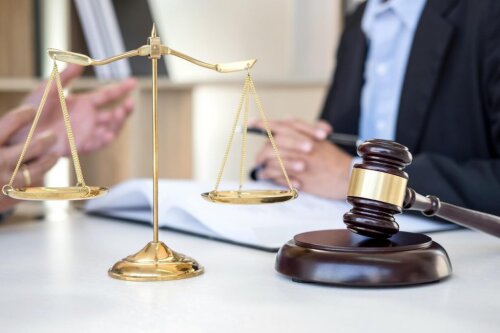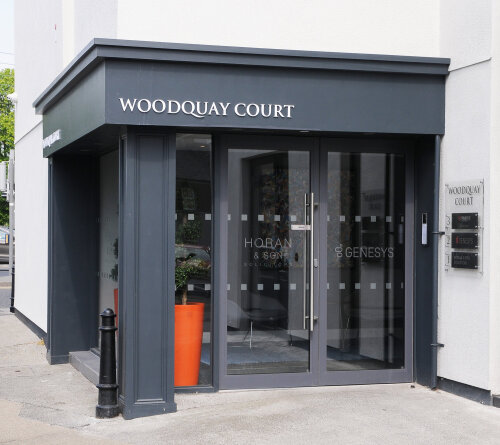Best Defamation Lawyers in Galway
Share your needs with us, get contacted by law firms.
Free. Takes 2 min.
List of the best lawyers in Galway, Ireland
About Defamation Law in Galway, Ireland
Defamation law in Galway, as with the rest of Ireland, is designed to protect individuals and entities from unjust damage to their reputations. Defamation involves making false statements, either verbally (slander) or in writing (libel), that harm someone's reputation. Ireland’s defamation laws provide a legal framework for individuals seeking remedy or protection against untruthful and damaging statements. It's important to navigate this complex legal area with care, adhering to both local and national legal standards.
Why You May Need a Lawyer
There are numerous scenarios where seeking the advice of a lawyer specializing in defamation can be beneficial. If you have been accused of defamation, a lawyer can provide guidance on how to manage the allegations and protect your rights. Conversely, if you believe you have been defamed, a lawyer can help you understand whether you have a legitimate case and the best course of action to seek redress or damages. A clear understanding of the legal process and potential outcomes is crucial, making legal representation valuable.
Local Laws Overview
In Galway, like the rest of Ireland, the Defamation Act 2009 outlines the legal framework for defamation cases. Key aspects include the distinction between slander and libel, the elements required for a successful defamation claim (publication, identification, and defamatory meaning), and various defenses against defamation claims such as truth, honest opinion, and privilege. Understanding these local laws is essential for assessing the merits of a defamation case and determining the appropriate legal response.
Frequently Asked Questions
What constitutes defamation under Irish law?
Defamation occurs when a false statement is made that injures the reputation of an individual or entity, exposing them to hatred, ridicule, or contempt.
Can truthful statements be considered defamatory?
No, truth is a defense to a defamation claim in Ireland. A statement must be false to be considered defamatory.
What is the difference between libel and slander?
Libel refers to defamatory statements made in a fixed medium, typically written or published. Slander refers to defamatory statements made verbally or in another transient form.
How can I prove that a statement is defamatory?
To prove defamation, you must demonstrate that the statement was false, defamatory, made to a third party, and caused harm to your reputation.
Are there any time limits for bringing a defamation action?
Yes, under the Defamation Act 2009, you generally have one year from the date of publication of the defamatory statement to bring an action, though the court may extend this to a maximum of two years in certain circumstances.
What defenses are available to someone accused of defamation?
Common defenses include proving the truth of the statement, demonstrating honest opinion, showing privilege, or consent from the defamed party.
Can a public figure sue for defamation?
Yes, but public figures may face a higher threshold to prove defamation, particularly relating to the protection of journalistic freedom and public interest.
What remedies are available in defamation cases?
Remedies may include damages, formal apologies, retractions, or corrections of the false statement, and in some cases, injunctions to prevent further publication.
Will a defamation case go to trial?
Not necessarily. Many defamation cases are settled out of court to avoid the costs and publicity of a trial.
How can I avoid being accused of defamation?
Ensure accuracy and truth in any statements made, avoid making statements that could harm someone's reputation without evidence, and understand the potential consequences of your communications.
Additional Resources
For further information on defamation law in Ireland, the following resources can be valuable: the Law Society of Ireland offers guidance and list of legal practitioners, the Citizens Information Board provides detailed explanations about the Defamation Act, and local law libraries or universities may offer further reading materials. Consulting one of these resources may help to clarify your understanding and provide guidance on next steps.
Next Steps
If you believe you require legal assistance with a defamation issue in Galway, it's prudent to seek out a specialized solicitor. Research and contact law firms that focus on defamation or media law. Schedule consultations to discuss your case and understand your options. Additionally, gathering all relevant documentation and preparing a clear summary of your case can be beneficial when consulting with a lawyer. Early legal advice is often crucial in effectively managing or resolving defamation disputes.
Lawzana helps you find the best lawyers and law firms in Galway through a curated and pre-screened list of qualified legal professionals. Our platform offers rankings and detailed profiles of attorneys and law firms, allowing you to compare based on practice areas, including Defamation, experience, and client feedback.
Each profile includes a description of the firm's areas of practice, client reviews, team members and partners, year of establishment, spoken languages, office locations, contact information, social media presence, and any published articles or resources. Most firms on our platform speak English and are experienced in both local and international legal matters.
Get a quote from top-rated law firms in Galway, Ireland — quickly, securely, and without unnecessary hassle.
Disclaimer:
The information provided on this page is for general informational purposes only and does not constitute legal advice. While we strive to ensure the accuracy and relevance of the content, legal information may change over time, and interpretations of the law can vary. You should always consult with a qualified legal professional for advice specific to your situation.
We disclaim all liability for actions taken or not taken based on the content of this page. If you believe any information is incorrect or outdated, please contact us, and we will review and update it where appropriate.
















